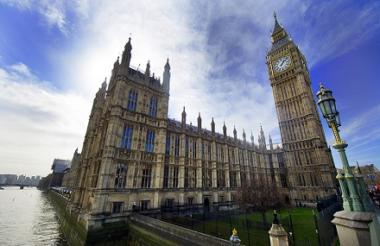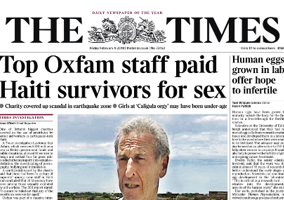In August 2020, someone wrote an account of how they had been sexually harassed at a UK aid charity, and the way they were treated when they reported the abuse.
It was published last week, one bit of evidence sent to a parliamentary inquiry into sexual exploitation in the international development sector.
The committee, quite rightly, protected the writer’s identity. So we do not know who this happened to – but the experience is so shocking it merits reproducing in detail.
‘Cornered’
The writer says they were sexually harassed by a colleague in 2019. When they reported what was happening, the charity investigated and confirmed that the complaint had been upheld.
But the victim never received any further information about what disciplinary action followed. To their shock, they soon found themselves back working with the perpetrator, sometimes “cornered in the office”.
This sounds distressing enough. Here is what happened next:
“After reporting, I faced rumour-milling, slut-shaming and invasive verbal queries from internal and external colleagues of my reporting.
“This forced me to avoid social gatherings, self-isolate, and live in a constant state of paranoia of not knowing who to trust.”
‘After that incident, I cried’
The writer had to travel for their job, but the charity handled the details so clumsily it made the victim vulnerable to further harassment. Their account reads: “[The charity] shared my mission travel data with the perpetrator through an open administration email.
“We were to be at the airport at the same time, because his flight was only 45 minutes before mine.
“He had access to my pick-up time from home, estimated time of arrival at the airport, the terminal number, and my flight number too.”
The writer made alternative arrangements for the flight and sat “in fear and anxiety” in the departure lounge.
“After that incident, I cried and I told everyone relevant (management, HR, legal, admin) how I felt very unsafe.
“I requested for my future travel data to be separated from everyone else’s. It happened twice again after, with the perpetrator also in the same email thread.
“In their response to my lawyer, [the charity] does not take responsibility for this, indicated that it was unfortunate and thanked me for alerting them anyway of this gap.”
The risk of failing staff
The account is a reminder that, for all the coverage commanded by the Oxfam Haiti scandal, aid charities have been criticised over treatment of their own staff as well as abuse of aid beneficiaries.
And it was not the only such account.
In another letter to the committee, a former aid charity worker describes being paid-off to leave the organisation after raising questions about how a sexual assault inquiry was carried out.
A further letter, which describes how poorly some staff are treated at the United Nations, warns that charities often look to the UN as bodies “on which they model themselves”.
We have been here before
Staff safety was also the issue when the Charity Commission found Save the Children UK guilty of “serious errors” in the way it handled complaints in 2015 about sexual misconduct by some senior staff.
One woman who complained at the time later told the BBC: “They weren't trying to protect me or safeguard any other women. It was just about covering this up as quickly as they could.”
Save the Children UK now uses its annual report to publish an extraordinary level of detail covering concerns about abuse and actions to address those concerns. Such transparency is very welcome, but is also very new: when reporters first asked the charity about the 2015 allegations, they were met with threats of legal action.
No one should feel unsafe
The message charities should take from the committee is not really about procedures and protocols, although there are plenty such recommendations in its final report.
It is much more essential than that. The bureaucratic language of safeguarding implementation and shared learnings obscures as much as it helps.
If they haven’t done so already, charity bosses would do well to bang the desk and make it clear to their staff that no one should feel unsafe at work. They should shout from the rooftops that the idea of colleagues scuttling around in fright is appalling.
Staff will need to hear a lot more passion from their bosses about the damage predators and bullies can cause – and a concrete plan for cutting it out.
Related articles












